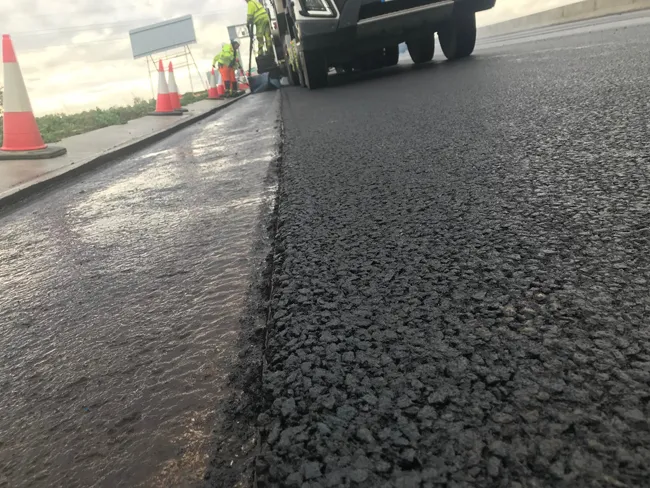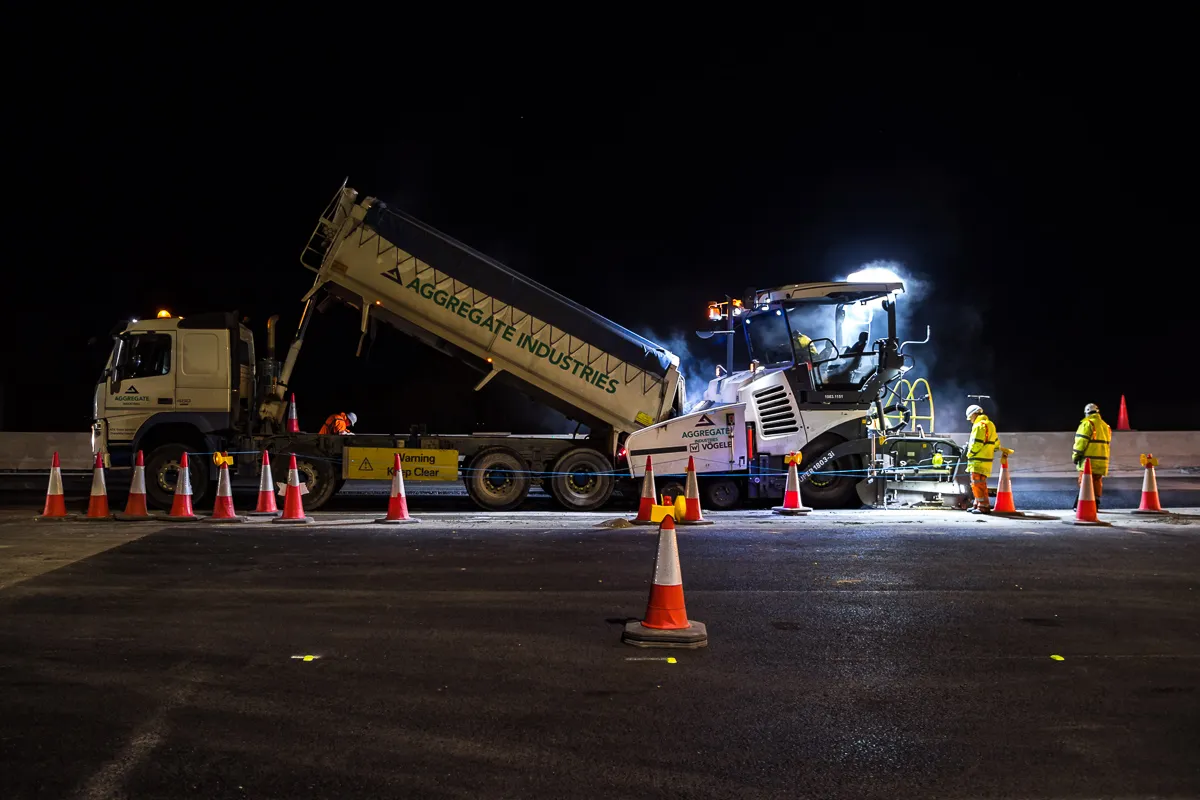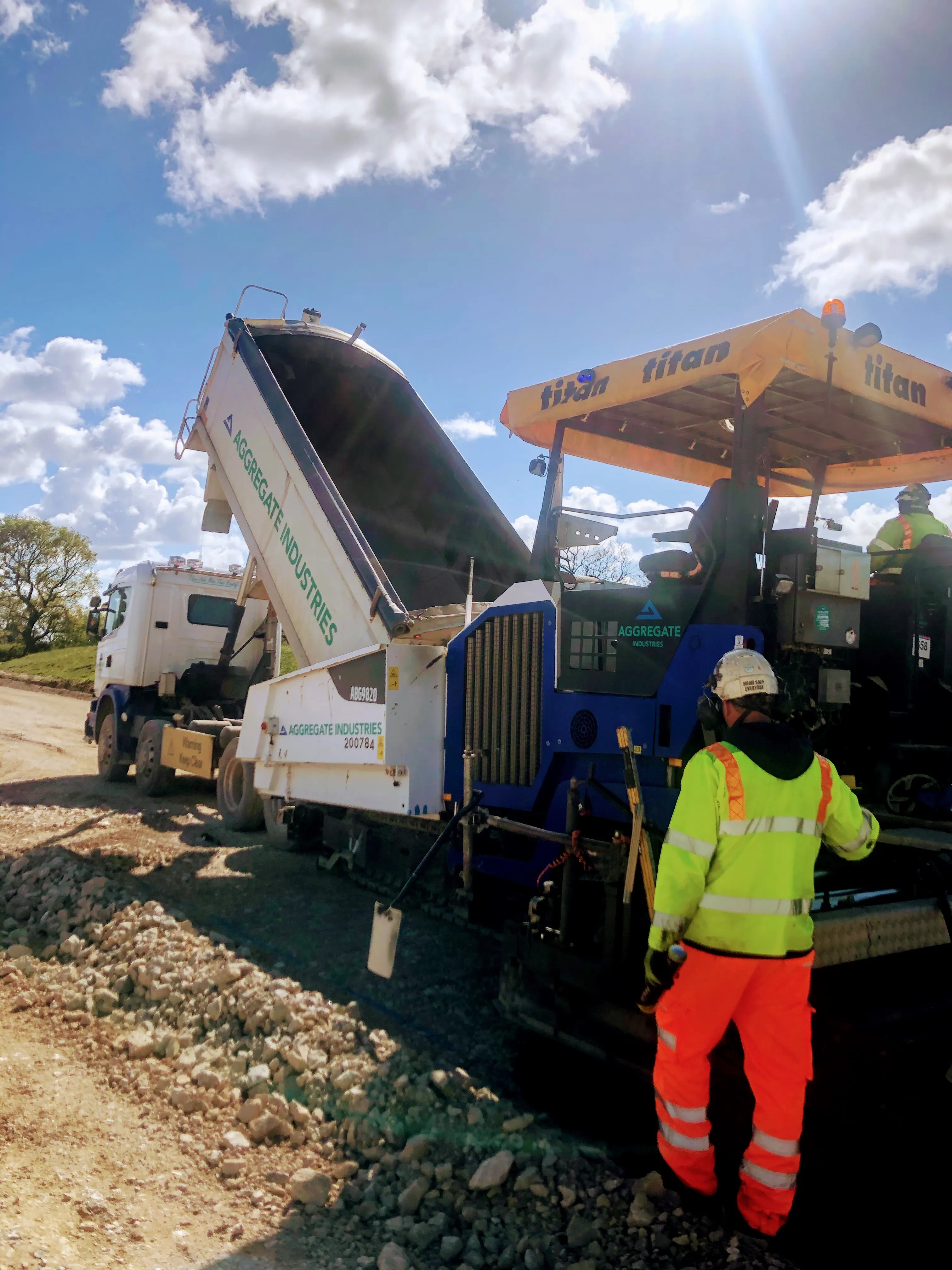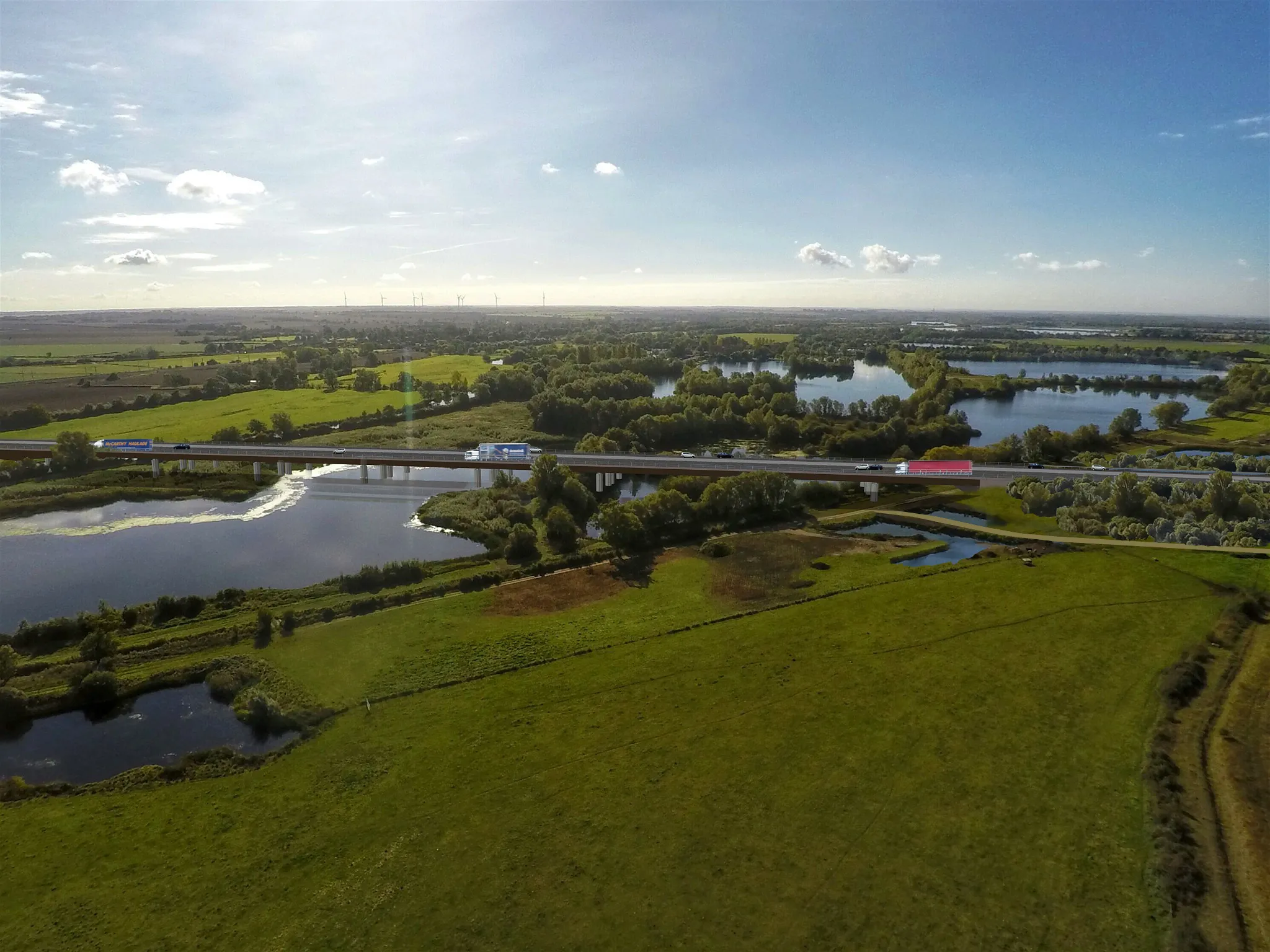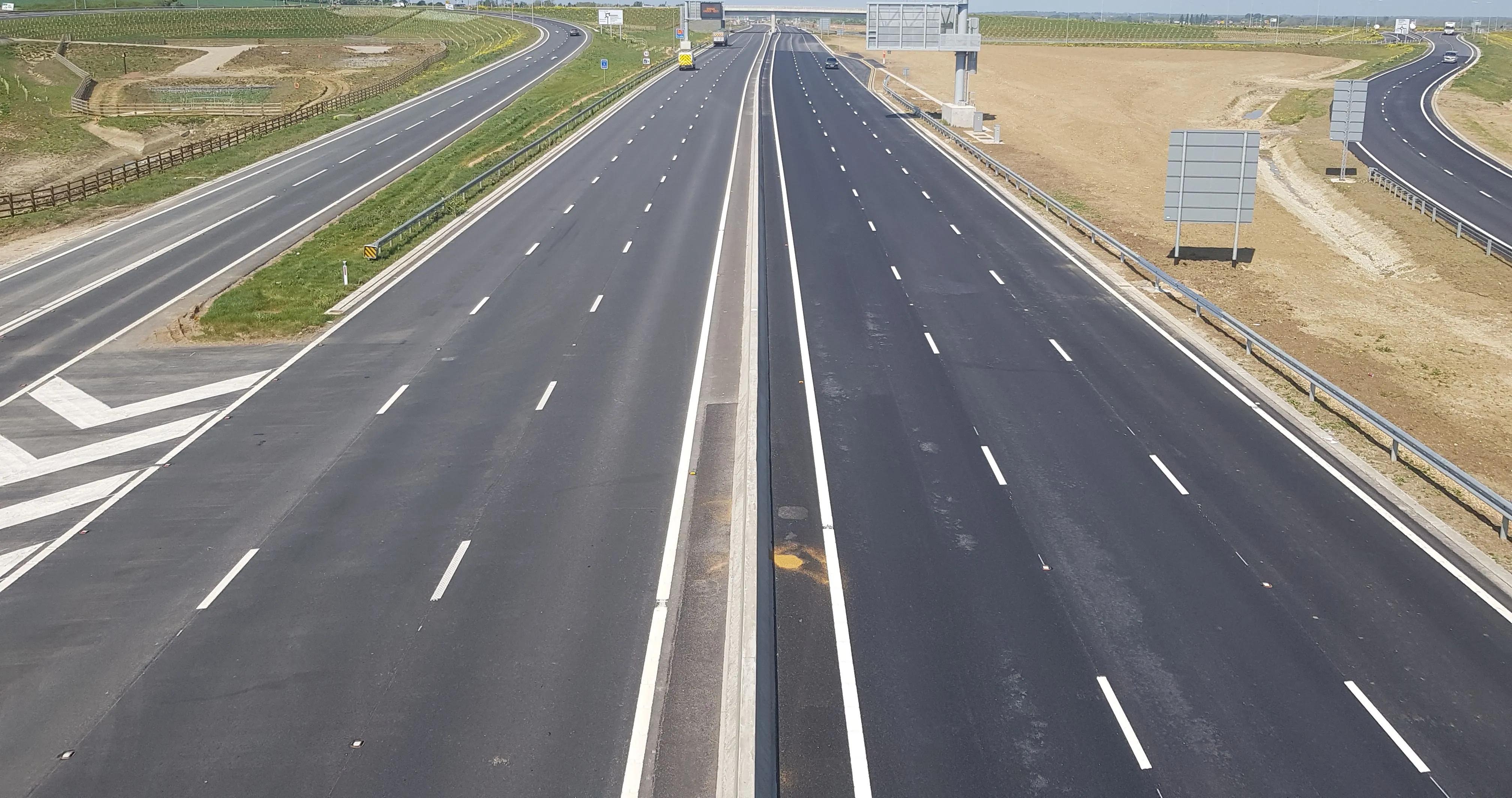
Aggregate Industries has completed all major works on Highways England’s A14 Cambridge to Huntingdon Improvement Scheme. The firm worked in collaboration with the A14 Integrated Delivery Team, one of the UK’s largest infrastructure projects. The improved road opened for traffic on 5th May, eight months ahead of the scheduled opening date.
The company says that negotiating the supply of material and installation of a major infrastructure project was a key achievement for its Asphalt and Contracting teams. In total, over 1.6 million m2 of road was constructed and surfaced, and 10km of non-motorised user pathways built.
This required more than 730,000tonnes of asphalt to be produced at a purpose-built plant on site and laid, along with in excess of 550,000tonnes of low-carbon cement bound granular mixture (CBGM), manufactured on a mobile cementitious mixing plant by SiteBatch. These plants played a crucial role in minimising the carbon footprint of the scheme as deliveries were made on-site, requiring less vehicle movements on the Strategic Road Network. In addition, Aggregate Industries transported the aggregate used in its asphalt mixes by rail, further reducing its environmental impact.
To satisfy stringent noise restrictions where the scheme passes through built-up areas, Aggregate Industries utilised its ultra-low noise asphalt, 10mm SuperThin. This reduces noise levels by 7.8db(A) when compared with traditional hot rolled asphalt (HRA).
Paddy Murphy, managing director of contracting at Aggregate Industries, said: “The early opening of the A14 to traffic is a monumental achievement. It is testament to the collaboration of all teams involved that we have delivered the UK’s largest, most prestigious infrastructure project to date in such good time, whilst meeting the highest safety standards.
“We’re also delighted that amongst the disruption caused by the coronavirus outbreak, we were able to continue to work safely by adopting stringent measures and sticking to social distancing guidelines. The resulting road ensures that deliveries of vital supplies and key workers will be able to reach their destination.”
Around 200 workers from Aggregate Industries were involved in this infrastructure improvement scheme and, over the course of the project, not a single lost-time injury was sustained by the workforce.
Meanwhile, Technology Services has played a major role in the successful completion of the work. Telent is a leading UK technology and network services company.
While all major works have been completed, some works on verges, pedestrian footpaths and landscaping will continue until 2022, requiring some overnight closures. Details of these will be made available on Highways England’s channels.


